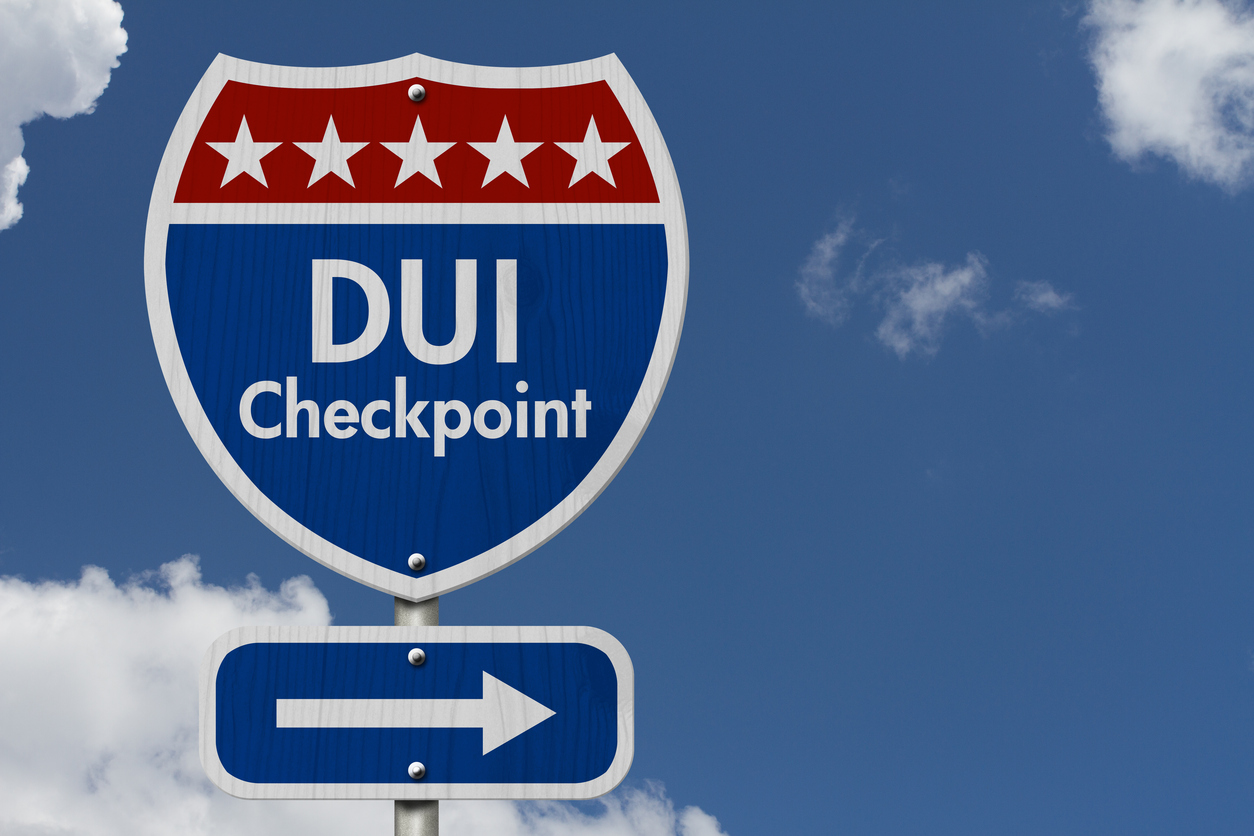Mark Roman | December 13, 2023 | Car Accidents

There were over 10,000 alcohol-related traffic fatalities nationwide in 2019, and over 800 of them occurred in Florida alone. Drunk driving is a crime that has inspired law enforcement to take aggressive and creative measures to combat DUI driving and car accidents. Setting up DUI checkpoints to catch impaired drivers is one of these measures.
DUI checkpoints, sometimes called sobriety checkpoints, can alarm drivers regardless of whether they have consumed any alcohol. Knowing how law enforcement deploys these checkpoints and understanding your rights when stopped at a checkpoint can give you confidence the next time you see one.
Five Important Limitations on DUI Checkpoints
Checkpoints are potentially considered a warrantless seizure under the Fourth Amendment to the U.S. Constitution. This means that if law enforcement officers do not conduct these checkpoints in a certain manner, any DUI conviction coming out of the checkpoint could be overturned. Some of these limitations that law enforcement must comply with include the following:
Announcement of Impending DUI Checkpoint
Officers cannot choose to set up a DUI checkpoint on a whim. Instead, they must provide public notice of where the check lane will be located and when it will be conducted before it is actually set up. Failing to give the public notice of a DUI checkpoint can render it unconstitutional.
High Visibility of Checkpoint
There must be sufficient lighting and signs warning drivers of the upcoming checkpoint. Additionally, the police vehicles must be clearly marked and identifiable. You can legally drive around a checkpoint as long as you obey all traffic laws, though this might draw the attention of law enforcement.
No Profiling of Vehicles
Officers do not have to stop every vehicle approaching a checkpoint, but they must not discriminate against or profile drivers they do stop. For example, officers can stop every third car that comes through the checkpoint, but they cannot only stop every white car or every female driver.
If officers decide to stop a vehicle outside of the pattern or rules they have chosen, that stop must be justified by reasonable suspicion. Examples of reasonable suspicion could include erratic driving or the commission of a traffic offense in an officer’s presence.
Limited Contact With Drivers
Once a vehicle has entered the checkpoint and officers have stopped it, they are only afforded a limited amount of time to speak with a driver. They can ask the driver to produce their license and other documentation and ask whether the driver has consumed any alcohol.
However, if the officer does not see signs of impairment and does not develop probable cause to believe the driver is under the influence within a short time, the driver must be released and allowed to continue on their way.
You Do Not Have To Answer Questions
Officers ask questions of drivers at checkpoints for two reasons. First, if a driver admits to having consumed alcohol, this admission can support further testing and, possibly, a DUI arrest. Secondly, officers want you to talk so they can see if they smell alcohol on your breath. The odor of alcohol is a sign of intoxication and can also justify further testing.
While you have to produce your license and any other document requested by the officer, you do not have to answer their questions. If you do find yourself stopped at a checkpoint after having consumed alcohol, the best course of action could be just to remain silent.
Your Rights After a Checkpoint
A DUI checkpoint is just the beginning of a DUI investigation, not the end. If you are arrested after passing through a checkpoint, you have the right to challenge your arrest. An experienced lawyer can examine the constitutionality of your checkpoint arrest and fight against unjustified DUI charges.
Alternatively, if you were injured in an accident caused by a drunk driver, a qualified attorney can help you pursue the compensation you need and deserve.
Contact the Clearwater DUI Law Firm of Roman Austin Car Accident and Personal Injury Lawyers for Help Today
For more information, please contact the legal team of Roman Austin Car Accident and Personal Injury Lawyers for a free initial consultation with a car or motorcycle accident lawyer in Clearwater. We have convenient locations in Florida: St. Petersburg, Safety Harbor, Clearwater, New Port Richey, and Tampa.
We serve throughout Pinellas County, Hillsborough County, Pasco County, and its surrounding areas:
Roman Austin Car Accident and Personal Injury Lawyers – Clearwater Office
1811 N. Belcher Road, Suite I-1
Clearwater, FL 33765
(727) 787-2500
Roman Austin Car Accident and Personal Injury Lawyers – Congress Ave Office
2360 Congress Avenue
Clearwater, FL 33763
(727) 591-5610
Roman Austin Car Accident and Personal Injury Lawyers – Tampa Office
6601 Memorial Hwy Suite 202
Tampa, FL 33615
(813) 686-7588
Roman Austin Car Accident and Personal Injury Lawyers – New Port Richey Office
2515 Seven Springs Blvd.
New Port Richey, FL, 34655
(727) 815-8442
Roman Austin Car Accident and Personal Injury Lawyers – St. Petersburg Law Office
840 Beach Dr NE Suite 202
St. Petersburg, FL 33701
(727) 787-2500
Roman Austin Car Accident and Personal Injury Lawyers – Safety Harbor Law Office
202 9th Ave S Suite A-2
Safety Harbor, FL 34695
(727) 787-2500


